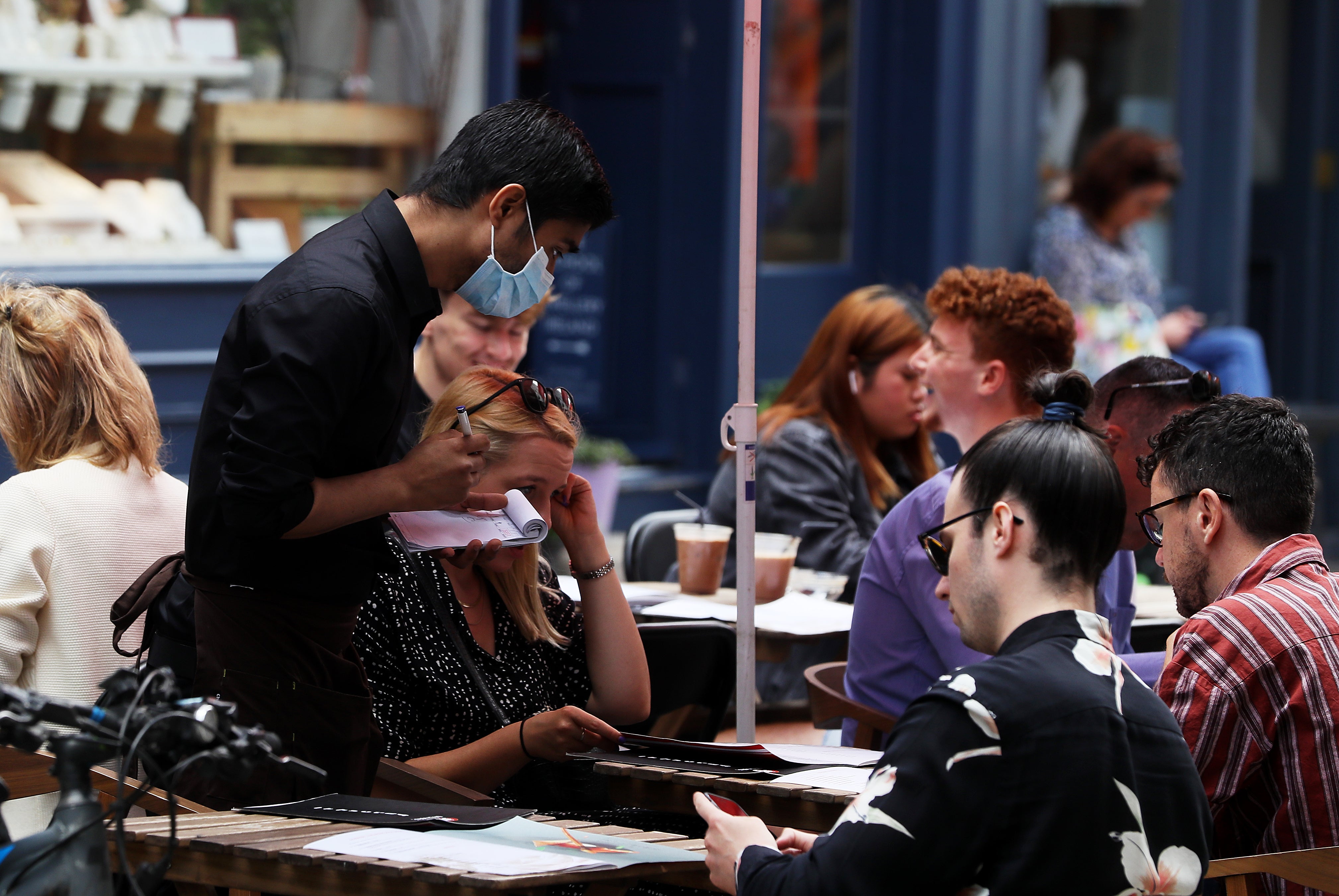UK service sector hikes prices and sees supply chain hit to new orders
The latest IHS Markit/CIPS UK Services PMI survey showed the steepest rise in prices for services since the survey records began.

Your support helps us to tell the story
From reproductive rights to climate change to Big Tech, The Independent is on the ground when the story is developing. Whether it's investigating the financials of Elon Musk's pro-Trump PAC or producing our latest documentary, 'The A Word', which shines a light on the American women fighting for reproductive rights, we know how important it is to parse out the facts from the messaging.
At such a critical moment in US history, we need reporters on the ground. Your donation allows us to keep sending journalists to speak to both sides of the story.
The Independent is trusted by Americans across the entire political spectrum. And unlike many other quality news outlets, we choose not to lock Americans out of our reporting and analysis with paywalls. We believe quality journalism should be available to everyone, paid for by those who can afford it.
Your support makes all the difference.UK service sector firms hiked prices at a record pace last month as they battled against surging cost pressures and a slump in new orders due to supply and staff shortages, new figures have shown.
The closely watched IHS Markit CIPS UK Services PMI survey revealed that new order growth weakened for the fourth month in a row, with new business rising at the slowest pace for six months.
Overall service sector output was better than expected, with the report showing a reading of 55.4 in September, which is up from the six-month low of 55 recorded in August.
Economists had been expecting a reading of 54.6.
The supply chain crisis put a considerable brake on recovery in the UK service sector during September
The report laid bare the pressures facing the sector, with the data showing firms resorting to passing on costs to customers, with the steepest rise in prices for services since the survey records began.
Supply chain difficulties and staff shortages also saw a rising backlog of work in the sector, with unfinished business now having built up for seven months straight – the longest run since 2015.
Tim Moore economics director at survey compiler IHS Markit, said: “The supply chain crisis put a considerable brake on recovery in the UK service sector during September.
“Survey respondents widely noted that shortages of staff, raw materials and transport had resulted in lost business opportunities.
“Consequently, new orders expanded at the slowest pace since the end of the winter lockdown, while backlogs of work accumulated as service providers struggled to find candidates to fill vacancies.”
It seems the floodgates are open for higher inflation to wash through the UK economy
He added that the cost pressures rose again last month due to supply chain issues and staff wage increases, even before the full impact of the recent fuel crisis and energy tariff hikes.
“Tight constraints on business capacity and rampant supply chain uncertainty meant that service providers have become more willing to pass on higher costs to customers,” Mr Moore cautioned.
It raises the spectre of yet more price rises for consumers over the coming months, with inflation already having seen a record jump to 3.2% in August, which is the highest level for nearly a decade.
There are mounting fears over price rises and shortages of food and items during the all-important Christmas season.
Duncan Brock, group director at the Chartered Institute of Procurement & Supply (CIPS), said: “As prices charged rose at their fastest rate since 1996, it seems the floodgates are open for higher inflation to wash through the UK economy and firms fear the growth this month may be eroded further by higher costs and shortages as we move towards the festive period.”